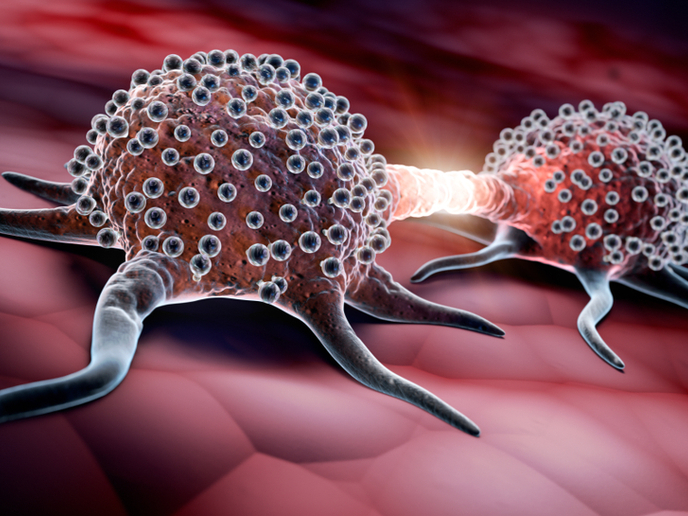Using the gut’s microbiome to detect breast cancer early
Cancer is the second leading cause of death globally(opens in new window), after cardiovascular disease. In 2018 it was responsible for an estimated 9.6 million deaths(opens in new window) around the world, about one in six deaths. If cancer can be diagnosed early, when it is not too large and has not spread, is can often be treated successfully. Later, therapy is more difficult and costly, with a lower chance of survival. For example, over 90 % of women diagnosed with early-stage breast cancer, the most common in women, survive for at least 5 years(opens in new window) compared to around 15 % diagnosed with the disease at an advanced stage. The EU-supported BiomStrip project took advantage of the fact that all diseases – from metabolic problems through to psychiatric disorders – go hand-in-hand with the upset of symbiotic microbial balance, called dysbiosis. Gut dysbiosis accompanies not only local conditions linked with the gut, such as colon cancer, but all types of cancer. The team has identified suitable cancer biomarkers from extensive biobank data, validated the selective markers and secured the first patent on a diagnostic marker. Two more are currently pending. EU funding enabled the team to conduct a feasibility study for the innovation’s further development and business plan.
Point-of-care diagnostic screening
To detect cancer early, BiomStrip relies on identifying specific reactions of antibodies that reveal the presence or absence of cancer markers. The handheld diagnostic device delivers a YES or NO answer for cancer in a few minutes by analysing a stool sample to detect these markers. “As the device is easy to use, patients can carry out the tests themselves, much like a pregnancy test. A negative result for cancer comes with a higher degree of confidence than current screening practice. In the case of a positive response, users should follow up by visiting a doctor for a physical examination and advice,” says Peter Bay, leader of the BiomStrip research. In cases of a confirmed positive result, detecting the disease so early means it can be treated effectively, greatly increasing patients’ chances of successful treatment.
A future platform technology
The BiomStrip innovation could contribute to dramatic improvement in cancer survival rates. Its availability as an over-the-counter device promises to alleviate the burden of screening large populations to identify individuals at risk. This would help reduce healthcare costs, with more focused use of expensive resources, while achieving greater screening compliance. It will also empower patients by giving them simple, readily available diagnostics and more knowledge about their own health. “Currently our research focuses on breast cancer, but BiomStrip can be used for any type of cancer for which markers have been identified and validated. We want to develop the technology further to cover more types of cancer,” says Bay. The team’s aim is to operate as a technology developer and provider. With a working prototype, they are now looking to partner with companies for the manufacture and distribution of the point-of-care device under a licence agreement, after the necessary regulatory approval has been met. In the meantime, work is ongoing to expand the biomarker database and plan further validation studies for them.







